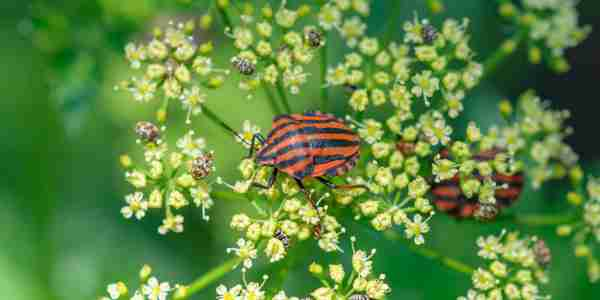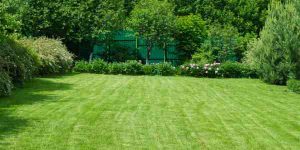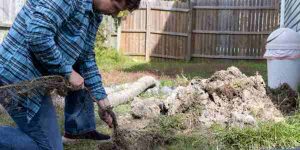How to Combat Pests in Your Garden

How to Combat Pests and Diseases in Your Garden
Gardening is a rewarding hobby that brings beauty, fresh produce, and a sense of accomplishment. However, pests and diseases can quickly turn your lush, vibrant garden into a battleground. Managing these threats effectively requires a combination of proactive measures, natural remedies, and, when necessary, professional interventions. Here’s an in-depth guide on how to combat pests and diseases in your garden, with a little help from the experts at Impact Landscapes.
Understanding Common Pests and Diseases
Before you can combat pests and diseases, it’s essential to know what you’re up against. Here are some common garden pests and diseases:
- Aphids: Small, sap-sucking insects that can weaken plants and transmit diseases.
- Caterpillars: Larvae of butterflies and moths that feed on leaves.
- Slugs and Snails: Mollusks that feed on a variety of plants, particularly tender seedlings.
- Powdery Mildew: A fungal disease that appears as a white, powdery coating on leaves.
- Blight: A term for various fungal diseases that cause rapid plant decay, such as tomato blight.
- Root Rot: A condition caused by overwatering or poorly drained soil, leading to decayed roots.
Preventative Measures
Prevention is the first line of defense against pests and diseases. Here are some strategies to keep your garden healthy:
- Soil Health: Start with healthy soil. Use compost and organic matter to improve soil structure and fertility. Healthy soil promotes strong, disease-resistant plants. For professional soil analysis and enhancement, Impact Landscapes offers tailored soil treatment services.
- Choose Resistant Varieties: When possible, select plant varieties that are resistant to common pests and diseases.
- Proper Spacing: Avoid overcrowding plants. Proper spacing allows air to circulate, reducing the risk of fungal diseases.
- Watering Practices: Water your plants at the base rather than from above to prevent water from lingering on leaves, which can promote fungal growth. Water in the morning to allow foliage to dry during the day.
- Cleanliness: Keep your garden clean. Remove plant debris, fallen leaves, and weeds regularly, as they can harbor pests and diseases.
Natural Remedies
Natural remedies can be highly effective in managing pests and diseases while maintaining an eco-friendly garden.
- Neem Oil: A natural pesticide that is effective against a wide range of pests, including aphids and spider mites. Mix with water and spray on affected plants.
- Insecticidal Soap: Effective against soft-bodied insects like aphids and whiteflies. It works by breaking down the insect’s outer layer, causing dehydration.
- Companion Planting: Some plants naturally repel pests. For example, planting marigolds with tomatoes can deter nematodes, while basil can repel mosquitoes and flies.
- Beneficial Insects: Introduce beneficial insects like ladybugs, lacewings, and predatory beetles, which prey on harmful pests. Impact Landscapes can assist with introducing these beneficial insects into your garden.
- Homemade Sprays: Garlic and chili sprays can deter a range of pests. Mix crushed garlic or chili with water, strain, and spray on plants.
Mechanical and Physical Controls
Sometimes, the simplest methods are the most effective.
- Handpicking: For larger pests like caterpillars and beetles, handpicking can be very effective. Drop them into a bucket of soapy water to dispose of them.
- Barriers and Traps: Use barriers like row covers to protect plants from flying insects and small mammals. Beer traps can attract and drown slugs and snails.
- Mulching: Mulch not only conserves moisture but also helps prevent weeds that can harbor pests.
Chemical Interventions
When natural methods aren’t enough, chemical pesticides and fungicides can be used as a last resort. Here are some tips for using them responsibly:
- Select the Right Product: Choose a pesticide or fungicide that is specifically designed to target your problem pest or disease. Broad-spectrum chemicals can harm beneficial insects and pollinators.
- Follow Instructions: Always follow the label instructions for application rates and safety precautions. Overuse can lead to chemical resistance and environmental harm.
- Spot Treatment: Apply chemicals only to affected areas rather than the entire garden to minimize exposure and reduce the risk of harming beneficial organisms.
For more persistent issues, Impact Landscapes offers professional pest and disease management services, ensuring safe and effective treatment tailored to your garden’s needs.
Integrated Pest Management (IPM)
Integrated Pest Management (IPM) is a holistic approach that combines various strategies to manage pests and diseases effectively.
- Monitoring: Regularly inspect your garden to identify problems early. Use traps and other monitoring tools to track pest populations.
- Thresholds: Determine acceptable pest levels before taking action. Not all pests need to be eradicated; some can be managed at lower levels.
- Control Methods: Use a combination of biological, mechanical, cultural, and chemical controls to manage pests in a sustainable way. Impact Landscapes can help develop and implement an IPM plan tailored to your garden.
Conclusion
Combating pests and diseases in your garden requires a multifaceted approach that includes prevention, natural remedies, and, when necessary, professional treatments. By understanding the common threats and employing a variety of strategies, you can maintain a healthy, vibrant garden. Remember, the key to successful pest and disease management is vigilance and early intervention. For expert advice and services, consider reaching out to Impact Landscapes to help keep your garden thriving.



